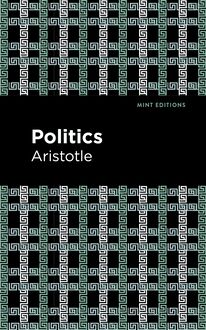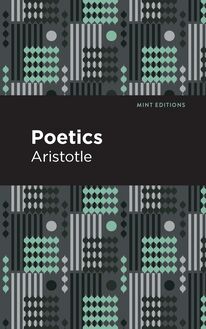-
 Univers
Univers
-
 Ebooks
Ebooks
-
 Livres audio
Livres audio
-
 Presse
Presse
-
 Podcasts
Podcasts
-
 BD
BD
-
 Documents
Documents
-
- Cours
- Révisions
- Ressources pédagogiques
- Sciences de l’éducation
- Manuels scolaires
- Langues
- Travaux de classe
- Annales de BEP
- Etudes supérieures
- Maternelle et primaire
- Fiches de lecture
- Orientation scolaire
- Méthodologie
- Corrigés de devoir
- Annales d’examens et concours
- Annales du bac
- Annales du brevet
- Rapports de stage
La lecture à portée de main

Vous pourrez modifier la taille du texte de cet ouvrage
Découvre YouScribe en t'inscrivant gratuitement
Je m'inscrisDécouvre YouScribe en t'inscrivant gratuitement
Je m'inscrisEn savoir plus
Vous pourrez modifier la taille du texte de cet ouvrage
En savoir plus

Description
“Shaw will not allow complacency; he hates second-hand opinions; he attacks fashion; he continually challenges and unsettles, questioning and provoking us even when he is making us laugh. And he is still at it. No cliché or truism of contemporary life is safe from him.” -Michael Holroyd
Of all of George Bernard Shaw’s plays, Pygmalion has been the most enduring. Based on the Greek Classical myth, this work is both extremely witty and psychologically penetrating. Composed in five acts, the play examines social and ethical issues and the inherent flaws of human interactions.
Henry Higgins, a London phonetics teacher, wagers a bet with a colleague that he can transform the cockney-accented diction and manners of an impoverished flower girl, and pass her off as member of high society. The girl, Eliza Doolittle, accepts to take part of the experiment in the hope that her consequential metamorphosis will aid her in procuring a job in a proper flower shop. Her transfiguration, however, comes at great cost. Shaw’s exceptionally sharp dialogue and characteristic wit is unmatched in this classic and timeless work of drama.
With an eye-catching new cover, and professionally typeset manuscript, this edition of Pygmalion is both modern and readable.
Sujets
Informations
| Publié par | Mint Editions |
| Date de parution | 15 novembre 2020 |
| Nombre de lectures | 0 |
| EAN13 | 9781513265384 |
| Langue | English |
| Poids de l'ouvrage | 2 Mo |
Informations légales : prix de location à la page 0,0350€. Cette information est donnée uniquement à titre indicatif conformément à la législation en vigueur.
Extrait
Pygmalion
George Bernard Shaw
Pygmalion was first published in 1912.
This edition published by Mint Editions 2020.
ISBN 9781513264707 | E-ISBN 9781513265384
Published by Mint Editions®
minteditionbooks.com
Publishing Director: Jennifer Newens
Project Manager: Gabrielle Maudiere
Design & Production: Rachel Lopez Metzger
Typesetting: Westchester Publishing Services
C ONTENTS Act I Act II Act III Act IV Act V
A CT I
Covent Garden at 11.15 p.m. Torrents of heavy summer rain. Cab whistles blowing frantically in all directions. Pedestrians running for shelter into the market and under the portico of St. Paul’s Church, where there are already several people, among them a lady and her daughter in evening dress. They are all peering out gloomily at the rain, except one man with his back turned to the rest, who seems wholly preoccupied with a notebook in which he is writing busily.
The church clock strikes the first quarter.
T HE D AUGHTER : [ in the space between the central pillars, close to the one on her left ] I’m getting chilled to the bone. What can Freddy be doing all this time? He’s been gone twenty minutes.
T HE M OTHER : [ on her daughter’s right ] Not so long. But he ought to have got us a cab by this.
A B YSTANDER : [ on the lady’s right ] He won’t get no cab not until half-past eleven, missus, when they come back after dropping their theatre fares.
T HE M OTHER: But we must have a cab. We can’t stand here until half-past eleven. It’s too bad.
T HE B YSTANDER: Well, it ain’t my fault, missus.
T HE D AUGHTER: If Freddy had a bit of gumption, he would have got one at the theatre door.
T HE M OTHER: What could he have done, poor boy?
T HE D AUGHTER: Other people got cabs. Why couldn’t he?
[ Freddy rushes in out of the rain from the Southampton Street side, and comes between them closing a dripping umbrella. He is a young man of twenty, in evening dress, very wet around the ankles ]
T HE D AUGHTER: Well, haven’t you got a cab?
F REDDY: There’s not one to be had for love or money.
T HE M OTHER: Oh, Freddy, there must be one. You can’t have tried.
T HE D AUGHTER: It’s too tiresome. Do you expect us to go and get one ourselves?
F REDDY: I tell you they’re all engaged. The rain was so sudden: nobody was prepared; and everybody had to take a cab. I’ve been to Charing Cross one way and nearly to Ludgate Circus the other; and they were all engaged.
T HE M OTHER: Did you try Trafalgar Square?
F REDDY: There wasn’t one at Trafalgar Square.
T HE D AUGHTER: Did you try?
F REDDY: I tried as far as Charing Cross Station. Did you expect me to walk to Hammersmith?
T HE D AUGHTER: You haven’t tried at all.
T HE M OTHER: You really are very helpless, Freddy. Go again; and don’t come back until you have found a cab.
F REDDY: I shall simply get soaked for nothing.
T HE D AUGHTER: And what about us? Are we to stay here all night in this draught, with next to nothing on. You selfish pig—
F REDDY: Oh, very well: I’ll go, I’ll go. [ He opens his umbrella and dashes off Strandwards, but comes into collision with a flower girl, who is hurrying in for shelter, knocking her basket out of her hands. A blinding flash of lightning, followed instantly by a rattling peal of thunder, orchestrates the incident ]
T HE F LOWER G IRL: Nah then, Freddy: look wh’ y’ gowin, deah.
F REDDY: Sorry [ he rushes off ]
T HE F LOWER G IRL : [ picking up her scattered flowers and replacing them in the basket ] There’s menners f’ yer! Te-oo banches o voylets trod into the mad. [ She sits down on the plinth of the column, sorting her flowers, on the lady’s right. She is not at all an attractive person. She is perhaps eighteen, perhaps twenty, hardly older. She wears a little sailor hat of black straw that has long been exposed to the dust and soot of London and has seldom if ever been brushed. Her hair needs washing rather badly: its mousy color can hardly be natural. She wears a shoddy black coat that reaches nearly to her knees and is shaped to her waist. She has a brown skirt with a coarse apron. Her boots are much the worse for wear. She is no doubt as clean as she can afford to be; but compared to the ladies she is very dirty. Her features are no worse than theirs; but their condition leaves something to be desired; and she needs the services of a dentist ]
T HE M OTHER: How do you know that my son’s name is Freddy, pray?
T HE F LOWER G IRL: Ow, eez ye-ooa san, is e? Wal, fewd dan y’ de-ooty bawmz a mather should, eed now bettern to spawl a pore gel’s flahrzn than ran awy atbaht pyin. Will ye-oo py me f’them? [ Here, with apologies, this desperate attempt to represent her dialect without a phonetic alphabet must be abandoned as unintelligible outside London. ]
T HE D AUGHTER: Do nothing of the sort, mother. The idea!
T HE M OTHER: Please allow me, Clara. Have you any pennies?
T HE D AUGHTER: No. I’ve nothing smaller than sixpence.
T HE F LOWER G IRL : [ hopefully ] I can give you change for a tanner, kind lady.
T HE M OTHER : [ to Clara ] Give it to me. [ Clara parts reluctantly ] Now [ to the girl ] This is for your flowers.
T HE F LOWER G IRL: Thank you kindly, lady.
T HE D AUGHTER: Make her give you the change. These things are only a penny a bunch.
T HE M OTHER: Do hold your tongue, Clara. [ To the girl ] You can keep the change.
T HE F LOWER G IRL: Oh, thank you, lady.
T HE M OTHER: Now tell me how you know that young gentleman’s name.
T HE F LOWER G IRL: I didn’t.
T HE M OTHER: I heard you call him by it. Don’t try to deceive me.
T HE F LOWER G IRL : [ protesting ] Who’s trying to deceive you? I called him Freddy or Charlie same as you might yourself if you was talking to a stranger and wished to be pleasant. [ She sits down beside her basket ]
T HE D AUGHTER: Sixpence thrown away! Really, mamma, you might have spared Freddy that. [ She retreats in disgust behind the pillar ]
[ An elderly gentleman of the amiable military type rushes into shelter, and closes a dripping umbrella. He is in the same plight as Freddy, very wet about the ankles. He is in evening dress, with a light overcoat. He takes the place left vacant by the daughter’s retirement ]
T HE G ENTLEMAN: Phew!
T HE M OTHER : [ to the gentleman ] Oh, sir, is there any sign of its stopping?
T HE G ENTLEMAN: I’m afraid not. It started worse than ever about two minutes ago. [ He goes to the plinth beside the flower girl; puts up his foot on it; and stoops to turn down his trouser ends ]
T HE M OTHER: Oh, dear! [ She retires sadly and joins her daughter ]
T HE F LOWER G IRL : [ taking advantage of the military gentleman’s proximity to establish friendly relations with him ] If it’s worse it’s a sign it’s nearly over. So cheer up, Captain; and buy a flower off a poor girl.
T HE G ENTLEMAN: I’m sorry, I haven’t any change.
T HE F LOWER G IRL: I can give you change, Captain,
T HE G ENTLEMEN: For a sovereign? I’ve nothing less.
T HE F LOWER G IRL: Garn! Oh do buy a flower off me, Captain. I can change half-a-crown. Take this for tuppence.
T HE G ENTLEMAN: Now don’t be troublesome: there’s a good girl. [ Trying his pockets ] I really haven’t any change—Stop: here’s three hapence, if that’s any use to you [ he retreats to the other pillar ]
T HE F LOWER G IRL : [ disappointed, but thinking three halfpence better than nothing ] Thank you, sir.
T HE B YSTANDER : [ to the girl ] You be careful: give him a flower for it. There’s a bloke here behind taking down every blessed word you’re saying. [ All turn to the man who is taking notes ]
T HE F LOWER G IRL : [ springing up terrified ] I ain’t done nothing wrong by speaking to the gentleman. I’ve a right to sell flowers if I keep off the kerb. [ Hysterically ] I’m a respectable girl: so help me, I never spoke to him except to ask him to buy a flower off me. [ General hubbub, mostly sympathetic to the flower girl, but deprecating her excessive sensibility. Cries of Don’t start hollerin. Who’s hurting you? Nobody’s going to touch you. What’s the good of fussing? Steady on. Easy, easy, etc., come from the elderly staid spectators, who pat her comfortingly. Less patient ones bid her shut her head, or ask her roughly what is wrong with her. A remoter group, not knowing what the matter is, crowd in and increase the noise with question and answer: What’s the row? What she do? Where is he? A tec taking her down. What! him? Yes: him over there: Took money off the gentleman, etc. The flower girl, distraught and mobbed, breaks through them to the gentleman, crying mildly ] Oh, sir, don’t let him charge me. You dunno what it means to me. They’ll take away my character and drive me on the streets for speaking to gentlemen. They—
T HE N OTE T AKER : [ coming forward on her right, the rest crowding after him ] There, there, there, there! Who’s hurting you, you silly girl? What do you take me for?
T HE B YSTANDER: It’s all right: he’s a gentleman: look at his boots. [ Explaining to the note taker ] She thought you was a copper’s nark, sir.
T HE N OTE T AKER : [ with quick interest ] What’s a copper’s nark?
T HE B YSTANDER : [ inept at definition ] It’s a—well, it’s a copper’s nark, as you might say. What else would you call it? A sort of informer.
T HE F LOWER G IRL : [ still hysterical ] I take my Bible oath I never said a word—
T HE N OTE T AKER : [ overbearing but good-humored ] Oh, shut up, shut up. Do I look like a policeman?
T HE F LOWER G IRL : [ far from reassured ] Then what did you take down my words for? How do I know whether you took me down right? You just show me what you’ve wrote about me. [ The note taker opens his book and holds it steadily under her nose, though the pressure of the mob trying to read it over his shoulders would upset a weaker man ] What’s that? That ain’t proper writing. I can’t read that.
T HE N OTE T AKER . I can. [ Reads, reproducing her pronunciation exactly ] “Cheer ap, Keptin; n’ haw ya flahr orf a pore gel.”
T HE F LOWER G IRL
Attention
En entrant sur cette page, vous certifiez :
- 1. avoir atteint l'âge légal de majorité de votre pays de résidence.
- 2. avoir pris connaissance du caractère érotique de ce document.
- 3. vous engager à ne pas diffuser le contenu de ce document.
- 4. consulter ce document à titre purement personnel en n'impliquant aucune société ou organisme d'État.
- 5. vous engager à mettre en oeuvre tous les moyens existants à ce jour pour empêcher n'importe quel mineur d'accéder à ce document.
- 6. déclarer n'être choqué(e) par aucun type de sexualité.
YouScribe ne pourra pas être tenu responsable en cas de non-respect des points précédemment énumérés. Bonne lecture !
-
 Univers
Univers
-
 Ebooks
Ebooks
-
 Livres audio
Livres audio
-
 Presse
Presse
-
 Podcasts
Podcasts
-
 BD
BD
-
 Documents
Documents
-
Jeunesse
-
Littérature
-
Ressources professionnelles
-
Santé et bien-être
-
Savoirs
-
Education
-
Loisirs et hobbies
-
Art, musique et cinéma
-
Actualité et débat de société
-
Jeunesse
-
Littérature
-
Ressources professionnelles
-
Santé et bien-être
-
Savoirs
-
Education
-
Loisirs et hobbies
-
Art, musique et cinéma
-
Actualité et débat de société
-
Actualités
-
Lifestyle
-
Presse jeunesse
-
Presse professionnelle
-
Pratique
-
Presse sportive
-
Presse internationale
-
Culture & Médias
-
Action et Aventures
-
Science-fiction et Fantasy
-
Société
-
Jeunesse
-
Littérature
-
Ressources professionnelles
-
Santé et bien-être
-
Savoirs
-
Education
-
Loisirs et hobbies
-
Art, musique et cinéma
-
Actualité et débat de société
- Cours
- Révisions
- Ressources pédagogiques
- Sciences de l’éducation
- Manuels scolaires
- Langues
- Travaux de classe
- Annales de BEP
- Etudes supérieures
- Maternelle et primaire
- Fiches de lecture
- Orientation scolaire
- Méthodologie
- Corrigés de devoir
- Annales d’examens et concours
- Annales du bac
- Annales du brevet
- Rapports de stage

















